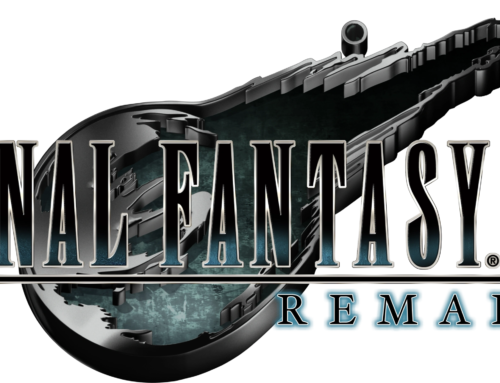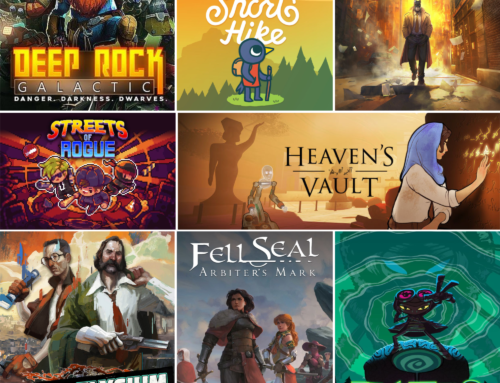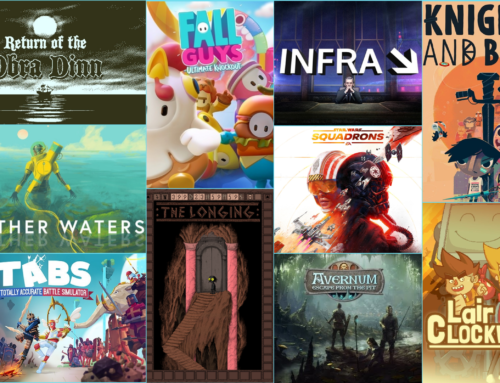Part Four of Critical Mass Effect
This is the fourth and final part of Critical Mass Effect, a close look at the Mass Effect series. Previous entries are:
- Part 0: Mass Effect’s Astoundingly Inept Sidequests
- Part 1: What Mass Effect Gets Wrong
- Part 2: What Mass Effect Got Right
- Part 3:The Evolution of Mass Effect
This final entry looks at Mass Effect 3, and contains spoilers for that game.
If you could sum up all of Mass Effect 3 in one word, it would be “inevitable.” Its creation, the final part of a planned trilogy whose first two parts were best-sellers, was as sure a thing as you can find in game development. The design, too, feels inevitable. Bioware made some significant course changes from Mass Effect to its sequel.The changes stuck, and as a result Mass Effect 3 plays almost identically to its predecessor; a few tweaks to the combat engine aside, the only real change is an increased narrative focus. Mass Effect 2 got to dick around on character study as the middle game in the series, but Mass Effect 3 has to – as the tagline goes – “finish the fight.”
Of course, the ultimate aspect of that finish was a widely unpopular ending that caused an internet firestorm and overwhelmed coverage of the game proper. I have no interest in repeating that, so I’ll be focusing on the first 97% of the game, as well as a few thoughts on the series as a whole.
Third Time’s a Charm
There is something to be said for mythos. Over the course of the two previous games, Bioware had built up a sizable universe with a significant number of named characters, and Mass Effect 3 uses this to the fullest. It’s easy to dismiss this as fan service, but there is a genuine pleasure in recurrence, in seeing old faces in new situations. This is at least half the reason we watch television. The few times I experienced genuine delight in my playthrough, it was due to the return of favorite characters, and Bioware handles them more deftly than it could have; letting more minor characters make appropriate but not overextended cameos, giving better-developed characters a real moment to shine in the conclusion of the story. The downside is that, given the game’s general doom-and-gloom thrust, it develops a habit of having Important Character make the Ultimate Sacrifice for the Greater Good, and then give a little “the lights are going dim” speech before Shepard talks about how “we have to make sure their death wasn’t in vain,” as if preventing the extinction of all life in the galaxy wasn’t enough motivation.
 The combat also makes a comfortable return, and contains the best idea the series has had to date. Much has been made about the degree to which Mass Effect 2 moved away from the trappings of the RPG, but it still stuck with character classes and the play restrictions they represented; the player has to make an uninformed choice at the beginning of the game and have it mandate what they can and cannot do for the rest of the running time.
The combat also makes a comfortable return, and contains the best idea the series has had to date. Much has been made about the degree to which Mass Effect 2 moved away from the trappings of the RPG, but it still stuck with character classes and the play restrictions they represented; the player has to make an uninformed choice at the beginning of the game and have it mandate what they can and cannot do for the rest of the running time.
This is significantly curbed in Mass Effect 3 by allowing Shepard to carry each of the five weapon types, and assigning each weapon a weight. The more weight Shepard carries, the slower the recharge is on her biotic powers. For the first time, the player has to make legitimately difficult decisions as to how they balance their biotic and weapon use. Just as importantly, this can be changed mission to mission, so the otherwise repetitive combat doesn’t grow stale; I used a different weapon loadout every time, and was able to cycle between heavy biotics usage and playing a walking arsenal. The new ability to mod your weapons (ending Mass Effect’s run as the last western RPG without crafting) gives further breadth to the combat. The core engine is fundamentally the same as it was in Mass Effect 2 – but the core loop was already good then, and it only lacked enough things to do with it. The highest compliment I can pay to Mass Effect 3 is that I was not once bored with the combat (and there’s a lot of it).
The Problem with War Games
The other big change in Mass Effect 3 is the framing. You spent most of the first game trying to stop a Bad Dude doing Bad Stuff; at the end, it turns out there’s an existential threat to all sentient life in the universe. Poop.
But as previously discussed, Mass Effect 2 bizarrely kicked that can down the road. So here we are: interstellar war of the sort rarely seen even in the hyperbolic narratives of video games.
Very early on, there’s a pleasure in this. The microgenre of Guns & Conversation keeps the action limited even when the stakes are high. Mass Effect 3 starts with the total decimation of earth, and promises it will pick up from there. After spending all of last game playing therapist to the galaxy’s greatest killers and fighting some bagmen, this is exactly what any Mass Effect fan would be eager for.
This makes it all the more disappointing that it doesn’t work. Remembering what I said about inevitability? The series was always going to end here, with this setup, all life vs. the Reapers. Which makes it downright odd that the engine and systems created by Bioware don’t really support this.
 Mass Effect is a game of small-scale team combat; three individuals vs five to ten enemies at a time. When the game wants to draw things out, it just throws more waves of enemies at you. But the design is incapable of portraying anything resembling an actual battle; this isn’t Total War, this is Rainbow Six.
Mass Effect is a game of small-scale team combat; three individuals vs five to ten enemies at a time. When the game wants to draw things out, it just throws more waves of enemies at you. But the design is incapable of portraying anything resembling an actual battle; this isn’t Total War, this is Rainbow Six.
As a result, the game is filled with talking heads who Skype in to tell you how many billions of people have died, but you never experience it. The war is ultimately just a dressing, and not even a particularly affecting one; the numbers at play here are so enormous that I couldn’t really conceive of the scale of destruction. You could argue that this is intentional, but “galaxy-wide warfare isn’t something we can really comprehend” doesn’t seem like a point worth making.
This is made worse by the fact that, a couple of boss battles aside, you never actually fight the Reapers. Bioware wrote themselves into a hole when they cast them as enormous spacefaring robot squid. They weren’t about to make Mass Effect 3 a space sim, so instead we spend half the game fighting various Reaper peons, and half of it shooting up your fellow humans in the form of Cerberus.
Bioware tried to layer on a war metagame to make it not totally absent, but their hands are already tied. If they had introduced any complexity, they would have asked people to employ the sort of turn-based strategy skills the series had never asked of them; it wouldn’t be far to those who had come this far. But the result was that it’s so ludicrously simple – complete a sidequest, play a multiplayer mission, or click a button on your smartphone to make the Galactic Readiness Number bigger – that it’s both dull and immersion-breaking.
Erasing the Grey
Bioware made a very intentional, public decision to make Mass Effect 2 grimdark, and to force Shepard to work with unsavory, conflicted characters, rather than the typical assortment of do-gooders. It didn’t end up doing as much with this setup as it could have, but it did give us an interesting character in the Illusive Man, a racist nationalist who nevertheless may be key to saving the galaxy. He does a lot of good things for the wrong reasons (and also awful things).
 So my heart sunk when I learned that Mass Effect 3’s first post-prologue piece of business was to completely eradicate that grey. The Illusive Man is without warning or explanation transformed from a (more or less) pragmatic racist into a cardboard cutout megalomaniacal psycho, who loudly proclaims that Shepard should stop fighting the reapers because dumb reason. It borders on retcon; Bioware wanted you to see good in Cerberus so you’d be willing to work with them, but Mass Effect 3 is done with them, so now they are Super Bad Guys. I almost suspect that this was out of the realization that they couldn’t make an entire game out of shooting husks, and needed some solid human enemies.
So my heart sunk when I learned that Mass Effect 3’s first post-prologue piece of business was to completely eradicate that grey. The Illusive Man is without warning or explanation transformed from a (more or less) pragmatic racist into a cardboard cutout megalomaniacal psycho, who loudly proclaims that Shepard should stop fighting the reapers because dumb reason. It borders on retcon; Bioware wanted you to see good in Cerberus so you’d be willing to work with them, but Mass Effect 3 is done with them, so now they are Super Bad Guys. I almost suspect that this was out of the realization that they couldn’t make an entire game out of shooting husks, and needed some solid human enemies.
This avoidance of hard questions also manifests in the game’s portrayal of war. This is not rooted in the conflicted, documentary style of fare like Generation Kill; like almost all war video games, this resembles a 40s/50s era Hollywood WW II movie, all bluster and sacrifice to save the world. War is uncomfortable, and to make it fun we have to make the bad guys as bad as they can possibly be, so we have no doubts that shooting them is the right thing to do.
Even at their worst, the first two Mass Effects more or less earn their self-seriousness with narrative contiguity; character motivations, if not complex, are at least present in a clear cause-and-effect relationship. The Illusive Man’s turn is bonkers, and sets the tone of the game. You are with the Reapers or you are against them; the former are obviously villainous, and the latter have all sins washed away due to the necessity of their help.
Be All You Can Be
And yet despite these and many other criticisms of Mass Effect 3, I think it embodies the series’ ideals more than its predecessors. By this I don’t mean whatever stated ideals the developers have put forth, but the thrust of the series itself. You can tell what a work values by what it focuses on, what aspects show a lot of thought and what seem hastily thrown together.
Bioware is a company that came to fame adapting AD&D 2nd Edition into real-time, and has spent the rest of their history moving away from it; they want to take the nerd out of role-playing games. Every new game further obfuscates the die rolls, simplifies character classes, and strips out the more arcane aspects of the RPG in the interest of simplicity. Whether this is viewed as “accessible” or “dumbed down” is a matter of perspective, but it’s clearly where the studio’s heart lies, and Mass Effect 3 seems to be the purest distillation of this form.
 When Rock, Paper, Shotgun coined “guns and conversation,” it was a little jokey. But by its third incarnation, that’s really all the series cares about. For the final incarnation, Mass Effect created two new play modes to counterbalance the standard RPG mode. “Action Mode” turned all conversations into cutscenes, with automatic replies. “Story Mode” strips the combat difficulty to a minimum and shifts the focus to the conversations. It’s telling that these are the only parameters affected by the choice of modes. Systemically, the game is competent or better at having conversations and playing with guns; it does what it sets out to do, even if I think the narrative decisions largely undercut the result.
When Rock, Paper, Shotgun coined “guns and conversation,” it was a little jokey. But by its third incarnation, that’s really all the series cares about. For the final incarnation, Mass Effect created two new play modes to counterbalance the standard RPG mode. “Action Mode” turned all conversations into cutscenes, with automatic replies. “Story Mode” strips the combat difficulty to a minimum and shifts the focus to the conversations. It’s telling that these are the only parameters affected by the choice of modes. Systemically, the game is competent or better at having conversations and playing with guns; it does what it sets out to do, even if I think the narrative decisions largely undercut the result.
Where Do We Go From Here?
Once Bioware was purchased by EA, it was inevitable that Mass Effect games would continue to be made until they stopped selling. Mass Effect 3 completes the series’ story and takes the design to its obvious conclusion; it is not at all clear to me what Bioware will do with Mass Effect 4+, but I doubt it will be very interesting.
Yet I think there’s a lot to take away from the series. I’ve certainly found this deep delve rewarding (and if nothing else, I’ve finally been able to articulate my beef with Bioware’s design), but I also find it slightly bizarre that Mass Effect‘s design has been so siloed. The obvious answer is that this is a symptom of the western AAA RPG industry more or less collapsing during the rise of consoles, to the point where Bethesda and Bioware are the only big-name developers of single-player RPGs outside of Japan.
But I have no desire to see more RPGs like Mass Effect. Role-playing is not what these games are good at. It’s shooting. So instead of looking at Mass Effect as an RPG series that rapidly shed its core elements, why don’t we treat it as a shooter series that eventually found its way, and think of all the things we could do with this structure?
Take, for instance, a new Jagged Alliance game. You recruit a squad of mercenaries, and select missions on a map, just as you would do in a Bioware game – but with more choices and options. You could have a non-linear campaign weaved with narrative elements, like XCOM: Enemy Unknown. Your teammates could develop and gain new abilities and weapon proficiencies, and die off when a mission went bad. The tactical layer and the investments in your teammates could breathe new life into a genre that’s increasingly devolved into a cover-strewn shooting gallery, and the more grounded, combat-oriented approach could avoid a lot of the self-satisfied grandiosity of Bioware’s space opera.
Ultimately, I feel that Mass Effect was a game as ambitious as it was flawed, and Bioware largely dealt with these flaws by scaling back the ambition and making something safe, something that fit snugly in the space that typified AAA action games on the seventh generation of consoles. It enriched a lot of people, and I was not one of them. But I still believe in its core values; that repetitive violence and strong characters can exist in the same game, that creating immersive spaces increasingly requires the breaking of traditional genre boundaries, and that space opera still matters. Mass Effect, as a series, is both lengthy and rich enough to be an excellent object lesson for anyone looking to build a game out of the same core, and I hope that a team of game developers will have the gumption to say “I can do better” and the talent to actually do so.






Really liked these articles, it’s nice to see a more in-depth analysis of the series as a whole! I’m playing through ME2 right now and am really enjoying it. I was initially disappointment with how Bioware diluted or removed many of the RPG elements for the first game, but after getting most of the way through I’ve mostly managed to forget about these complaints.
The best moments come through interacting with and recruiting all the different companions, and this is truly one of the things Bioware does really well. I also really like how well fleshed out the universe is, despite some discrepancies like you mentioned in an earlier article. I’m mostly able to handwave those away as technical limitations.
Overall I really like the universe Bioware has built and hope they can do even better things with Mass Effect 4.
Glad you liked them 🙂